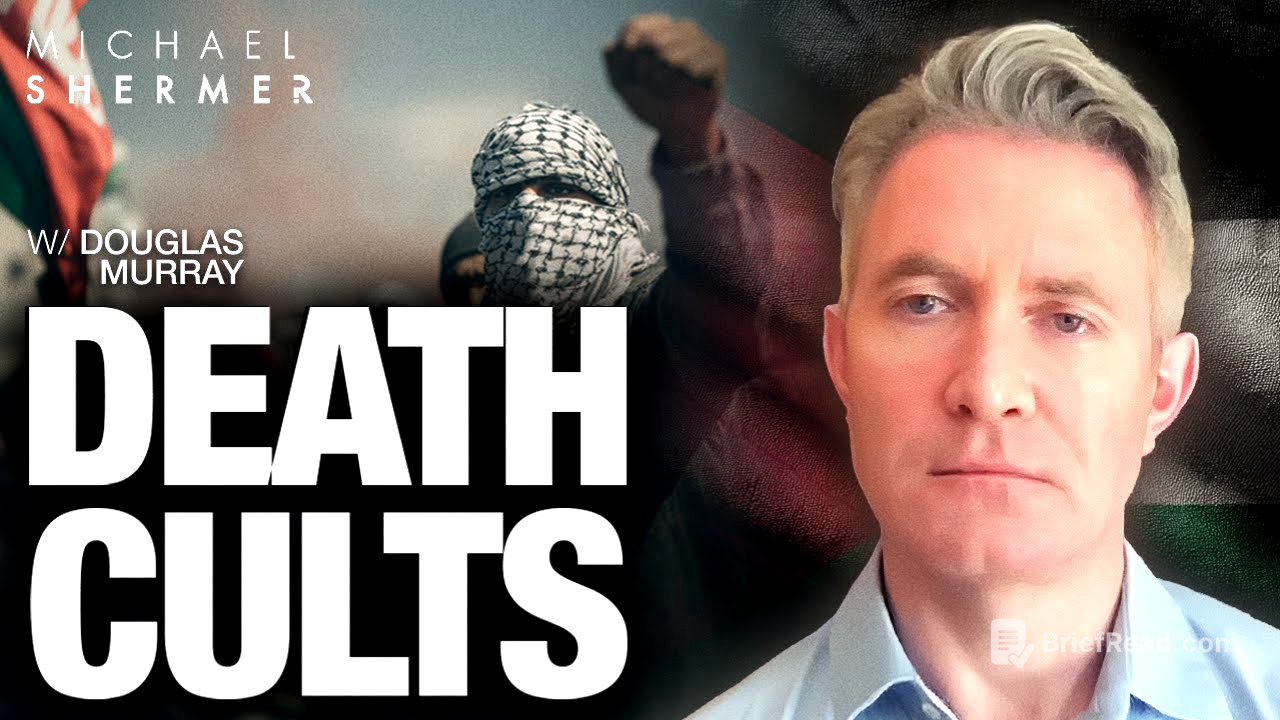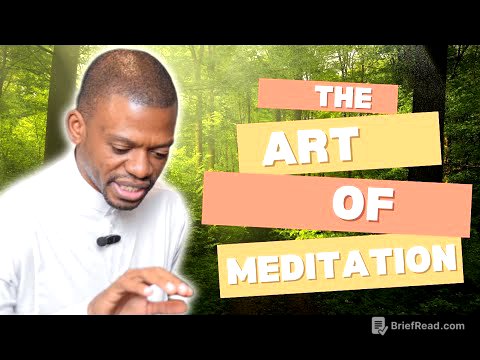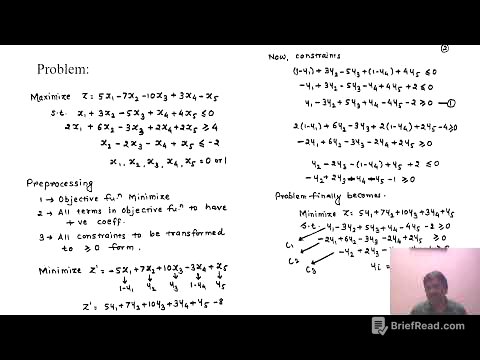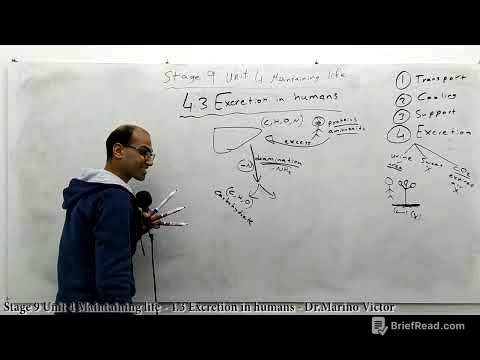TLDR;
Douglas Murray discusses his new book, "On Democracies and Death Cults: Israel and the Future of Civilisation," focusing on the aftermath of October 7th and the subsequent war. He addresses the glorification of death by groups like Hamas and the challenges this poses to Western mindsets. The conversation covers Iran's nuclear ambitions, the complexities of trusting media narratives, and the debate around interventionism and regime change. Murray also shares his views on the Israeli-Palestinian conflict, criticising the concept of a two-state solution and the bias in media coverage of the West Bank settlements. Finally, he touches on US politics, immigration, and the broader challenges facing Western societies.
- The book provides a firsthand account of the aftermath of October 7th and the war, including Murray's experiences embedded with the IDF.
- Murray argues that Hamas and similar groups glorify death, which is difficult for Westerners to comprehend.
- The discussion explores the complexities of Iran's nuclear programme and the trustworthiness of information from various sources.
- Murray critiques the concept of a two-state solution and highlights the bias in media coverage of the West Bank settlements.
- The conversation touches on US politics, immigration, and the broader challenges facing Western societies.
Introduction [0:00]
Michael Shermer introduces Douglas Murray, a returning guest and best-selling author, to discuss his new book, "On Democracies and Death Cults: Israel and the Future of Civilisation". Murray explains that the book is a personal account of the aftermath of the October 7th attacks and the ensuing war. He aims to provide a firsthand perspective of what he witnessed, including being embedded with the IDF in Gaza and Lebanon. The book also examines why so many people have supported Hamas, despite their terrorist actions.
Understanding Death Cults [5:12]
Murray defines a death cult as an ideology that glorifies death, citing historical examples such as Imperial Japan. He argues that Hamas, Hezbollah, and their Iranian backers fit this description, as they actively seek death for themselves and others. This mindset is difficult for Westerners to comprehend, as it challenges the presumption that everyone desires the same things. Murray highlights the words of Hassan Nasrallah, the former head of Hezbollah, who stated that the infidels' weakness is their love of life, while they (Hezbollah) love death. This love of death is tied to the belief in an afterlife where they will be rewarded for their actions on Earth.
Iran and Nuclear Deterrence [8:25]
The discussion shifts to Iran and its nuclear ambitions. Murray argues that the concept of mutual assured destruction, which relies on rational actors, may not apply to Iran due to its death cult ideology. Unlike Marxist regimes, which are mostly atheist and can be deterred by the threat of annihilation, Iran's religious beliefs and desire for death make it a less predictable and more dangerous nuclear power. Murray points out that Iran's support for Hamas and its repeated calls for Israel's eradication further justify concerns about its nuclear programme.
Trusting the Media on Iran [13:56]
Shermer raises the question of how much to trust mainstream media, the US government, and Israel regarding Iran. He references a debate between Scott Horton, a critic of US foreign policy, and Mark Dubowitz, an expert on Iran's nuclear programme. Murray acknowledges that misinformation exists, often spread by those who have recently become interested in the topic. He notes that interventions, presumably by the Israelis, such as the Stuxnet virus, have set back Iran's nuclear development. Murray suggests trusting experts like Dubowitz and international agencies like the IAEA, while also recognising that there is no reason to enrich uranium to the levels Iran has been if its intentions are purely civilian.
Interventionism and Regime Change [29:47]
The conversation turns to the topic of regime change in Iran. Murray notes that the prevailing feeling is that any change should be driven by the Iranian people themselves. He acknowledges the difficulties in achieving this, given the Iranian government's willingness to use extreme force against its own population. Murray references the "pottery barn rule," suggesting that if America or Israel were to overthrow the Iranian regime, they would be responsible for the aftermath. He believes that while options are available, they should be wielded by the Iranian people.
Democracy and Cultural Readiness [33:41]
Shermer brings up Nathan Sharansky's book, "The Case for Democracy," and the question of whether some cultures are not ready for democracy. Murray acknowledges the argument that the Arab and Muslim world are not suited for democracy, but counters that Eastern Europe was once viewed similarly. He suggests that the Iranian people, with a memory of a constitutional democracy from 46 years ago, may be different. However, he notes that no one seems confident that stepping in to end the current regime would lead to a workable outcome.
Criticism of Israel and the Iron Dome [36:53]
Murray addresses the issue of criticising Israel and whether it's possible to do so while still being a staunch supporter. He points out that the Israeli press is full of criticism of the government. Murray distinguishes between legitimate and illegitimate criticism, arguing that those who never present any scenario that allows Israel to legitimately retaliate for atrocities are enemies of the country. He uses an analogy of rockets being fired from New Jersey into New York City to illustrate the frustration of Israelis living under constant threat.
Motives for Supporting Israel [46:27]
Shermer asks Murray about his motives for supporting Israel, given that he is not Jewish. Murray explains that there are many Muslim countries, but only one Jewish state, making its survival crucial for the Jewish people. He notes that one can predict where someone will land on the question of Israel based on their attitude toward their own country. Murray argues that those who want to annihilate Israel also want the eradication of Western democracies.
Two-State Solution and the West Bank [51:30]
The discussion moves to the two-state solution, which Murray believes was killed by Hamas on October 7th. He finds it hard to see how the necessary trust could exist for land swaps and statehood for the Palestinian people. Murray suggests that normalisation in the region may come through a different route, such as the Abraham Accords. He also touches on the West Bank settlements, noting the misunderstandings surrounding the situation and the bias in media coverage.
US Politics and Immigration [59:32]
The conversation shifts to US politics, with Murray expressing concern about the potential election of a democratic socialist mayor in New York City. He believes it would be a disaster for the city, given the economic challenges it already faces. Murray also addresses the issue of immigration, arguing that speed, numbers, and identity are the key factors. He believes that many people in the West are unaware of how attractive their societies are to people from outside, and that this will be one of the biggest questions of the 21st century.









